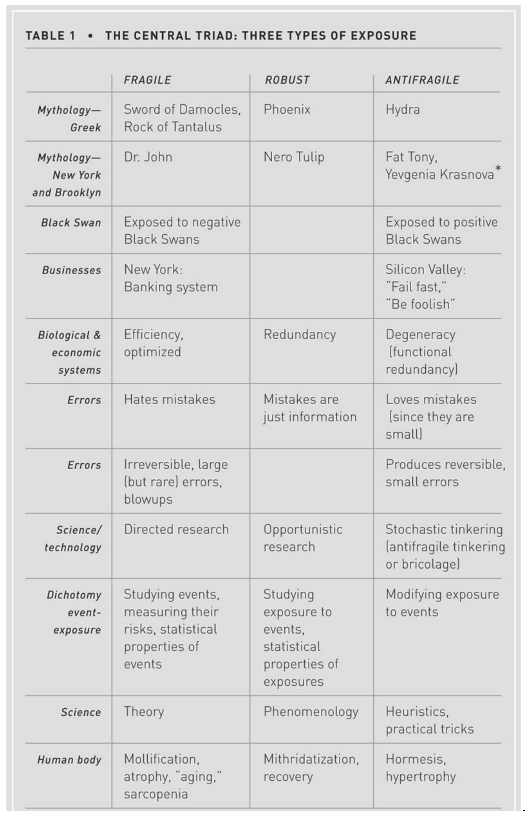Anti-fragile systems get better the more they is exposed to manageable stress.
Antifragile - Wikipedia (book)
Antifragility - Wikipedia
"Antifragility is a property of systems that increase in capability to thrive as a result of stressors, shocks, volatility, noise, mistakes, faults, attacks, or failures. It is a concept developed by Professor Nassim Nicholas Taleb in his book, Antifragile, and in technical papers.[1][2] As Taleb explains in his book, antifragility is fundamentally different from the concepts of resiliency (i.e. the ability to recover from failure) and robustness (that is, the ability to resist failure)."
Nassim Taleb: A Definition of Antifragile and its Implications

10 Principles to Live an Antifragile Life
- "Stick to simple rules
- Build in redundancy and layers (no single point of failure)
- Resist the urge to suppress randomness
- Make sure that you have your soul in the game
- Experiment and tinker — take lots of small risks
- Avoid risks that, if lost, would wipe you out completely
- Don’t get consumed by data
- Keep your options open
- Focus more on avoiding things that don’t work than trying to find out what does work
- Respect the old — look for habits and rules that have been around for a long time"
 The Netflix Simian Army - Netflix TechBlog - Medium
The Netflix Simian Army - Netflix TechBlog - MediumChaos engineering - Wikipedia